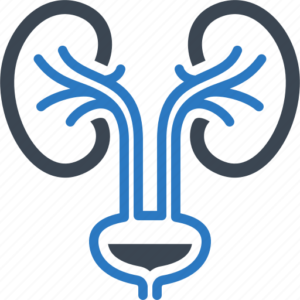The Importance of Hydration for Kidney Health: How Much Water Should You Drink?
Introduction
Staying hydrated is crucial for your kidney health and overall well-being. Your kidneys need water to filter waste and regulate fluids in your body. This guide explains why hydration is important for your kidneys and how much water you should drink daily to keep them healthy.
Why Hydration Matters for Kidney Health
Your kidneys are like your body’s natural filters, removing waste and extra fluids. When you’re hydrated, your kidneys can work efficiently to keep your blood clean and balanced. Dehydration makes it harder for your kidneys to function properly, which can lead to problems like kidney stones or infections. Learn more about kidney functions in our article How to Maintain Urinary Health: Daily Tips and Practices.
Understand the role of your kidneys and hydration here!
How Much Water Should You Drink?
The general recommendation is to drink about 8 glasses of water a day, which equals roughly 2 liters or half a gallon. However, individual needs can vary based on factors like age, weight, activity level, and climate. You might need more water if you’re physically active, live in a hot climate, or are pregnant or breastfeeding. Visit our guide on Diet and Lifestyle Tips for Preventing Urological Issues for more hydration tips.
Signs You Need More Water
Common signs of dehydration include dark yellow urine, dry mouth, fatigue, and dizziness. Aim to drink enough water so that your urine is light yellow or clear. Read about other important signs in our post Signs You Need to Visit a Urologist.
Hydrating Foods and Drinks
While water is the best source of hydration, you can also get fluids from foods and other drinks. Fruits and vegetables like cucumbers, oranges, and watermelon have high water content. Herbal teas and broths can also contribute to your daily intake. For more on hydration sources, check out How to Maintain Urinary Health: Daily Tips and Practices.
When and How to Drink Water
Spread your water intake throughout the day instead of drinking large amounts at once. Start your day with a glass of water, and aim to drink a little every hour. Keep a water bottle with you as a reminder. Learn more tips on how to maintain good hydration in our guide How to Prepare for Your Visit to a Urologist.
Adjusting Water Intake Based on Activity
If you exercise or engage in physical activities, you’ll need to drink more water to replace the fluids lost through sweat. Drink water before, during, and after exercise. Visit our article Exercise and Its Impact on Urological Health for more on staying hydrated during physical activity.
Learn how to adjust your water intake for exercise here!
Hydration for Different Ages
Children and the elderly have different hydration needs. Kids often need to be reminded to drink water, especially when playing. Older adults might not feel thirsty as often, so they need to drink regularly even if they don’t feel thirsty. For more advice on hydration for different ages, see How to Prepare Your Child for Urological Surgery.
Hydration and Kidney Stones
Staying well-hydrated helps prevent kidney stones by diluting the substances in urine that can form stones. Drink enough water to produce about 2 liters of urine a day. For those prone to stones, consult with a doctor for personalized advice. More tips can be found in How to Prevent Common Urological Conditions.
Learn how to prevent kidney stones through hydration here!
Hydration During Illness
If you’re ill, especially with fever, vomiting, or diarrhea, you’ll need to drink more water to stay hydrated. Oral rehydration solutions can also help restore lost fluids and electrolytes. For more on managing hydration during illness, visit Urological Treatment.
Avoid Overhydration
While staying hydrated is important, drinking too much water can also be harmful. Overhydration can dilute the minerals in your body, leading to imbalances. Drink water according to your thirst and needs, but avoid excessive amounts. For more on the balance, see Latest Advances in Urological Treatments: What You Need to Know.
Conclusion
Staying properly hydrated is essential for your kidney health and overall well-being. By drinking the right amount of water and including hydrating foods in your diet, you can support your kidneys and prevent urinary issues. For more information or to discuss any concerns, visit our Urology Doctor in Lucknow.
